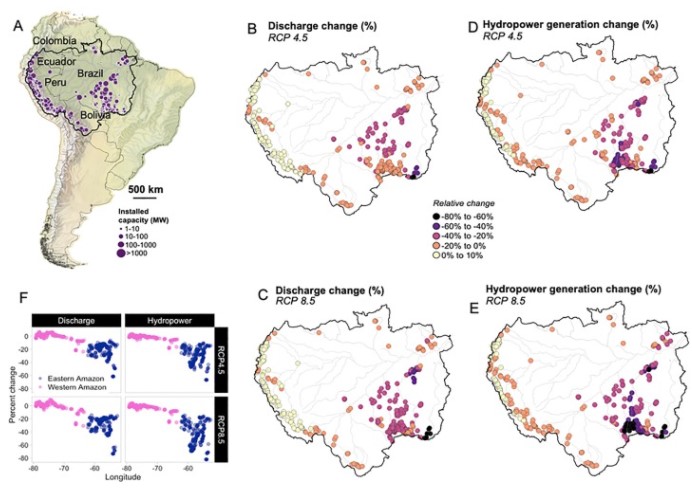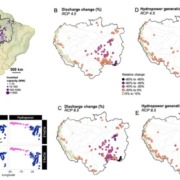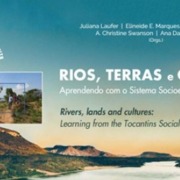Climate change threatens hydropower energy security in the Amazon basin

A new paper in Global Environmental Change led by Rafael Almeida examines the implications of climate change for hydropower production in the Amazon Basin. Projected changes in river discharge regimes will have serious implications for the reliability and cost-effectiveness of hydropower in many locations, suggesting that alternative energy sources such as wind and solar would be wise investments in place of an excessive dependence on hydropower alone. Excerpts from a press release and link to the open-access paper are below.
From EurekaAlert! press release:
Hydropower is the dominant source of energy in the Amazon region, the world’s largest river basin and a hotspot for future hydropower development. However, a new Global Environmental Change study warns that in the coming decades, climate change-driven reductions in precipitation and river discharge will diminish the Amazon’s hydropower capacity.
The study’s authors examined 351 proposed hydropower projects in the Amazon basin. Their findings suggest that hydrologic shifts by midcentury will reduce hydropower generation at many locations. As river discharge becomes increasingly variable and hydropower output declines, alternative energy sources like solar and wind are expected to become ever more important.
Lead author Rafael Almeida, a postdoctoral researcher at Cornell University who was formerly a visiting graduate student at Cary, explains, “Run-of-river hydropower dams are designed to operate within a particular range of flows. Flows that are too low won’t generate power, and flows that are too high must be ‘spilled’, causing problems, and not generating extra power. As the Brazilian Amazon experiences more variability in precipitation, with higher ‘highs’, lower ‘lows’, and fewer periods of optimal flow, it will mean proposed hydropower plants will operate at full capacity less often.”


